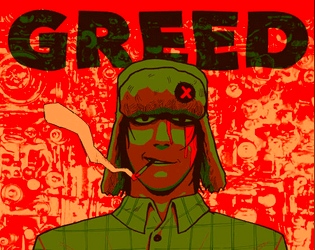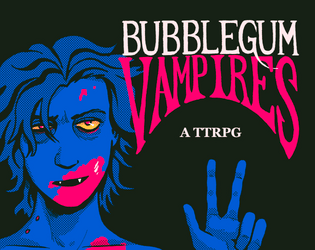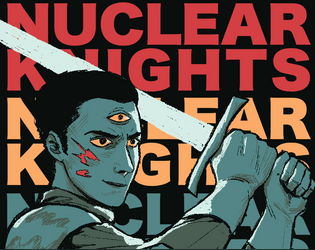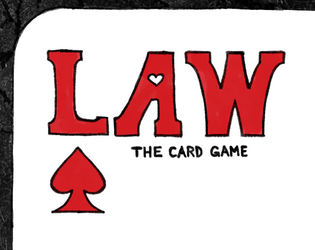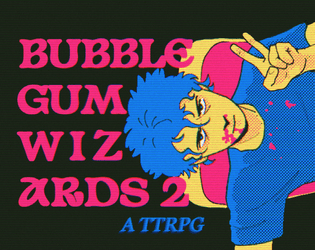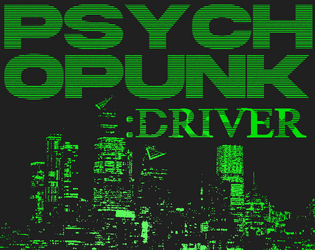I imagine i as the "Wheel" that the Rotapriests worship, and thus they put their Concordance to the Wheel and the result determines what powers they have. i, in terms of both literal game-mechanism and how a Rotapriest feels it, would be the axis that turns the wheel when the Rotapriest changes around it.
Gormengeist
Creator of
Recent community posts
As far as I'm concerned, because the Rotapriest's Concordance starts as a roll of 1d4+1, as a key stat (so it goes from 2 to 5) and it cycles across that range endlessly, there is no legal input which would get you 0 when put to the i. If you somehow get to that result anyways, then how about: the Rotapriest hits a snag in the wheel, whose pressure is cosmically only resolved via the dissolution of the Rotapriest, who resets to 2 Concordance and gains 50 bad luck.
In terms of your confusion with how it works, that makes sense! Here is a blog post about the design ethos behind the Rotapriest, mainly about why it's written like that. Thank you for your interest!!
Thank you so much!
The Negotiator is (ironically) originally from our newest game, Greed, the first draft of which was made by my design partner CXA all the way back while we were in high school. I always thought it was a striking mechanical idea and easy to translate into other systems, so I started quietly putting it into my games as a sort of homage. After I'd done it once or twice, I liked the idea that the Negotiatior was our sort of flagship in-house monster like the Beholder or something.
First of all, I'm just delighted to receive such a robust and thoughtful comment. Demonskunk 4ever. Putting in the work to make this system work for you even though it wasn't all there on the page how you wanted is not an ideal play experience, and it's tough(!) so I'm very grateful for you doing it and taking the time to tell me.
I will implement these changes or ones to that effect immediately! Thank you again, and I'm really pleased you had fun with this system.
PS. I would be interested in that Roll20 sheet. I will be in touch if I end up using it for anything for crediting purposes.
Thank you!
1: There is a Bubblegum Wizards 1, though I see it as a strictly worse version of this one, so it's free. It's the first thing I published on itch and I keep it up mostly for posterity.
2: When I released this, I super did, though now that's not a specific plan on the horizon because I've just released a larger project that I intend on supplementing. But you asking this question has sharply raised the possibility.
I agree that one unified stat seems limiting, but even 1 more would add lots of simple depth. Lots of binaries to choose from (physical/mental, detachment/attachment, instigation/reaction, etc.) that I think could be used to still represent the ways in which people are affected by a sort of crumbling world. For the issue of being good at either one or the other, I see at least one stupid but perhaps worth considering option: roll the stats anyways. In those classic games like Gamma World, it was possible for certain characters to be simply better than others. I think this was built on the understanding that everyone was probably gonna die pretty soon regardless, so you'd get a good chance at rolling a powerful character as well in time. And, it feels good to roll well. But aside from that, it's sort of down to how obstacles are set up, right? Like maybe it's often beneficial to roll middling instead of too high or low, which would benefit the middling statted player. I struggle with the same thing in some of my games, so I don't have any particularly sweet answer.
I think that building it around the narrative tropes of apocalypse movies is a great idea. After all, these are story engines and there's a reason those story beats resonate consistently. And even in their own movies, the tropes are the result of certain unspoken rules in those movies. For example, when you're kicked out of the safe place, it's probably because if had you been the person that did the kicking, you might have chosen the same thing. Every man for themself type deal. So you could recreate those scenarios without writing that it has to happen- only make it mechanically imperative for things to go that way. Want to stay in the nice city? Pay high taxes. If you can't afford them, you're kicked to the scorching desert. Either the players go on an adventure finding work to pay, or they can't and go on an adventure finding a new home. Kind of a win-win for drama (given there's fun rules for both cases).
It looks to me like there's something down them roads.



